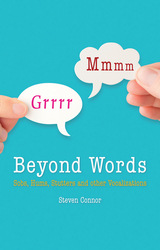
Beyond Words goes outside of linguistics and phonetics to focus on the popular conceptions of what language is, rather than what it actually is or how it works. From the moans and sobs of human grief to playful linguistic nonsense, Connor probes the fringes and limits of human language—and our definition of “voice” and meaning—to challenge our basic assumptions about what it is to communicate and where we find meaning in language. By engaging with vocal sounds and tics usually trivialized or ignored, Beyond Words presents a startling and fascinating new way to engage with language itself.
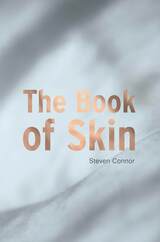
The Book of Skin then probes into how skin has been such a powerfully symbolic terrain in photography, religious iconography, cinema, and literature. From the Turin shroud to Ralph Ellison’s Invisible Man to plastic surgery, The Book of Skin expertly examines the role of skin in Western culture. A compelling read that penetrates well beyond skin-deep, The Book of Skin validates James Joyce’s declaration that “modern man has an epidermis rather than a soul.”
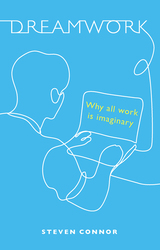
Dreamwork is a book about the ideas, dreams, dreads, and ideals we have about work. Its central argument is this: Although we depend on the idea of work for our identity as humans, we feel we must disguise from ourselves the fact that we do not know what work is. There is no example of work that nobody might, under some circumstances, do for fun. All work is imaginary—which is not to say that it is simply illusory, but rather that, to count as work, it must be imagined to be work. In other words, a large part of what we mean by working is this work of imagining. Work is therefore essentially mystical—just the opposite of what it is taken to be by all of us spending our days at desks, behind cash registers, and in factories. Delving into this complex mythos, Dreamwork looks in turn at worries about whether or not work is hard; the importance of places of work; the meanings of hobbies, holidays, and sabbaths; and the history of dreams of redeeming work.

Fly explores the history of this much-maligned creature and then turns to examine its newfound redemption through science. The secrets of the fly’s versatile powers of flight, Steven Connor reveals, are only beginning to be understood and appreciated. Its eyes and wings, for instance, have evolved so perfectly that they provide inspiration for some of today’s most daring technological and scientific innovations. And the humble fruit fly, Connor demonstrates, stands at the center of revolutionary advances in genetic research.
Connor delights in tracking his lowly subject through myth, literature, poetry, painting, film, and biology. Humans live in close and intimate quarters with flies, but Fly is the first book to give these common creatures their due.
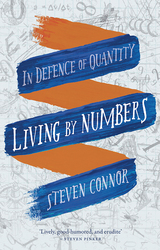
Connor explores a host of thought-provoking aspects of our numerical existence. He looks at the unexpected oddities that shape the loneliest number—the number one. He looks at counting as a human phenomenon and the ways we negotiate crowds, swarms, and multitudes. He demonstrates the work of calculation as it lies at the heart of poetry, jokes, painting, and music. He shows how we use numbers to adjust to uncertainty and chance and how they help us visualize the world in diagrammatic ways, and he unveils how numbers even help us think about death. Altogether, Connor brings into relief an aspect of our lives so ubiquitous that we often can’t see it, unveiling a rich new way of thinking about our existence.
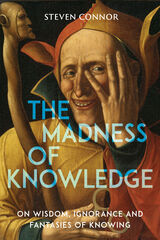
In an age of artificial intelligence, alternative facts, and mistrust of truth, The Madness of Knowledge offers an opulent, enlarging, and sometimes unnerving psychopathology of intellectual life.
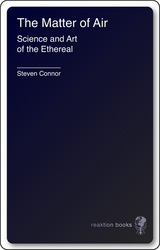
Take a deep breath. Air—without it, life on Earth would cease to exist. Though not usually seen, its presence is relied upon. At once both ethereal and physical, air has been associated with flight and spirit, and yet it has progressively become a territory that can be claimed through communications, warfare, travel, and scientific exploration. At the same time, air is no longer a completely reliable part of our daily life: like water, it has become an environmental element that must be watched closely for quality and purity.
A Matter of Air investigates the meanings of air over the last three centuries, including our modern concern over emissions and climate change. Steven Connor looks at the human relationship with air, both positive and negative. His explorations include the dangers posed by radio atmospherics, poison gas, and haze as well as our continued fascination with effervescence and explosives. Drawing ideas from religion, science, art, literature, and philosophy, A Matter of Air creates a comprehensive history of the human perception of air. Thoroughly researched and written with wit and quirky enthusiasm, the book will appeal to a wide range of general readers interested in the environment, human history, and our most essential aspects of life.
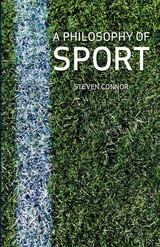
READERS
Browse our collection.
PUBLISHERS
See BiblioVault's publisher services.
STUDENT SERVICES
Files for college accessibility offices.
UChicago Accessibility Resources
home | accessibility | search | about | contact us
BiblioVault ® 2001 - 2024
The University of Chicago Press









